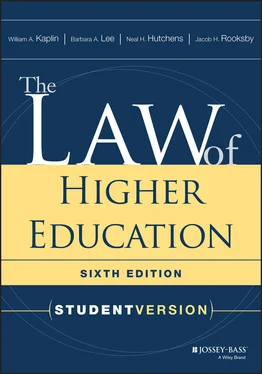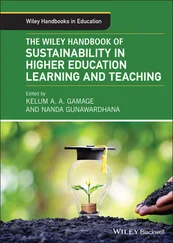Trinity Lutheran sued the Department. The district court and the Court of Appeals decided in the Department's favor, and the U.S. Supreme Court granted certiorari. Setting the framework for analysis of the case, the Court noted that the parties agreed that the establishment clause “does not prevent Missouri from including Trinity Lutheran in the Scrap Tire Program” (137 S. Ct. at 2019). But that “does not answer the question under the Free Exercise Clause.”
The Court then set forth the basic free exercise principles applicable to this case:
The Free Exercise Clause “protect[s] religious observers against unequal treatment” and subjects to the strictest scrutiny laws that target the religious for “special disabilities” based on their “religious status.” Church of Lukumi Babalu Aye, Inc. v. Hialeah , 508 U.S. 520, 533, 542 (1993) (internal quotation marks omitted). Applying that basic principle, this Court has repeatedly confirmed that denying a generally available benefit solely on account of religious identity imposes a penalty on the free exercise of religion that can be justified only by a state interest “of the highest order”. McDaniel v. Paty , 435 U.S. 618, 628 (1978) (plurality opinion) (quoting Wisconsin v. Yoder , 406 U.S. 205, 215 (1972)) [137 S. Ct. at 2019].
Relying on these basic principles, the Court considered the parties' arguments that are briefly reviewed here. The Church claimed that the Department's policy precluded the Church from competing for a scrap tire grant “solely because it is a church.” The Department refused to accept Trinity Lutheran's application, while considering the applications of all other nonprofits.
As explained by the Court:
The Department's policy puts Trinity Lutheran to a choice: It may participate in an otherwise available benefit program or remain a religious institution…. When the State conditions a benefit in this way,…the State has punished the free exercise of religion. [137 S. Ct. at 2021–22.]
In contrast:
The Department contends that merely declining to extend funds to Trinity Lutheran does not prohibit the Church from engaging in any religious conduct or otherwise exercising its religious rights…. Here the Department has simply declined to allocate to Trinity Lutheran a subsidy the State had no obligation to provide in the first place. That decision does not meaningfully burden the Church's free exercise rights… [137 S. Ct. at 2022.]
The Department also asserted a second argument focused on the Missouri State Constitution, Article I, section 7, the state's “anti-establishment” clause, which is stricter than the federal establishment clause. The Department argued that it had an interest in achieving more separation of church and state than the federal establishment clause provides. The Court rejected that argument as well, asserting that the Department's (or State's) “anti-establishment interest” is not sufficiently strong to override the strong and clear federal free exercise interest in this case. (Although the Department's argument was rejected here, the Court's language suggests that it could be successful in other cases if the state's anti-establishment interest is greater or the federal free exercise interest is lesser.)
By a vote of 7-2, in an opinion by Chief Justice Roberts, the U.S. Supreme Court held in favor of Trinity Lutheran Church. The Justices filed five opinions in the case, which should provide somewhat of a grand debate on the free exercise clause for the future. Since the Court's opinions are somewhat narrow, there will likely be an important role for Trinity Lutheran to play as precedents in future litigation.
The U.S. Supreme Court, over time, has become quite hospitable to the inclusion of church-related institutions in government support programs for postsecondary education. This has also been the case for the inclusion of students in student aid programs (short of the aid at issue in Locke v. Davey ) (above). The distinction between institutional-based aid and student-based aid has been very important. In earlier days when courts were implementing the Lemon tests, the emphasis was on the federal establishment clause. Over time, the federal free exercise clause has become increasingly important. Moreover, in states whose constitutions have their own establishment clauses that are more restrictive than the federal clause, intricate questions have arisen when states claim that their own anti-establishment values should take place over those of the federal government.
Given this picture of judicial activity in religion cases, it appears that there are still numerous issues to be addressed. These cases may be contentious, with strong disagreements and split verdicts. Trinity Lutheran Church , although not a higher education case, may be a useful example of such cases with split verdicts and strong disagreements, as well as a case where one of the parties has asserted a state establishment claim.
1.6.4 Religious autonomy rights of individuals in public postsecondary institutions.Whereas Sections 1.6.2and 1.6.3focused on church-state problems involving private institutions, this section focuses on church-state problems in public institutions. As explained in Section 1.6.1, public institutions are subject to the strictures of the First Amendment's establishment and free exercise clauses and parallel clauses in state constitutions, which are the source of rights that faculty members, students, and staff members may assert against their institutions. The most visible and contentious of these disputes involve situations in which a public institution has incorporated prayer or some other religious activity into an institutional activity or event.
In Tanford v. Brand , 104 F.3d 982 (7th Cir. 1997), for example, the U.S. Court of Appeals for the Seventh Circuit addressed the issue of prayer as part of the commencement exercises at a state university. A law school professor, law students, and an undergraduate student brought suit, challenging Indiana University's 155-year-old tradition of nonsectarian invocations and benedictions during commencement. The plaintiffs claimed that such a use of prayer, nonsectarian or not, violated the First Amendment's establishment clause and was equivalent to state endorsement of religion. The court rejected the plaintiff's First Amendment establishment clause claims, holding that the prayer tradition “‘is simply a tolerable acknowledgment of beliefs widely held among the people of this country.’ Marsh v. Chambers , 463 U.S. 783, 792 (1983).” Moreover, according to the court, the prayers at the commencement were voluntary and not coercive. Nearly 2,500 of the 7,400 graduating students had elected not to attend the previous commencement; those that did attend were free to exit before the invocation and benediction and return after each was completed; and those choosing not to exit were free to sit, as did most in attendance, during both ceremonies.
In Chaudhuri v. Tennessee , 130 F.3d 232 (6th Cir. 1997), the court endorsed and extended the holdingin Tanford . The plaintiff, a practicing Hindu originally from India and a tenured professor at Tennessee State University (TSU), claimed that the use of prayers at university functions violated the First Amendment's establishment clause. The functions at issue were not only graduation ceremonies as in Tanford , but also “faculty meetings, dedication ceremonies, and guest lectures.” After the suit was filed, TSU discontinued the prayers and instead adopted a “moment of silence” policy. The professor then challenged the moment of silence as well, alleging that the policy had been adopted in order to allow continued use of prayers. The appellate court determined that neither the prayers nor the moments of silence violated the establishment clause.
Читать дальше












